Letter from Africa: Has the African Union grown some teeth?
- Published
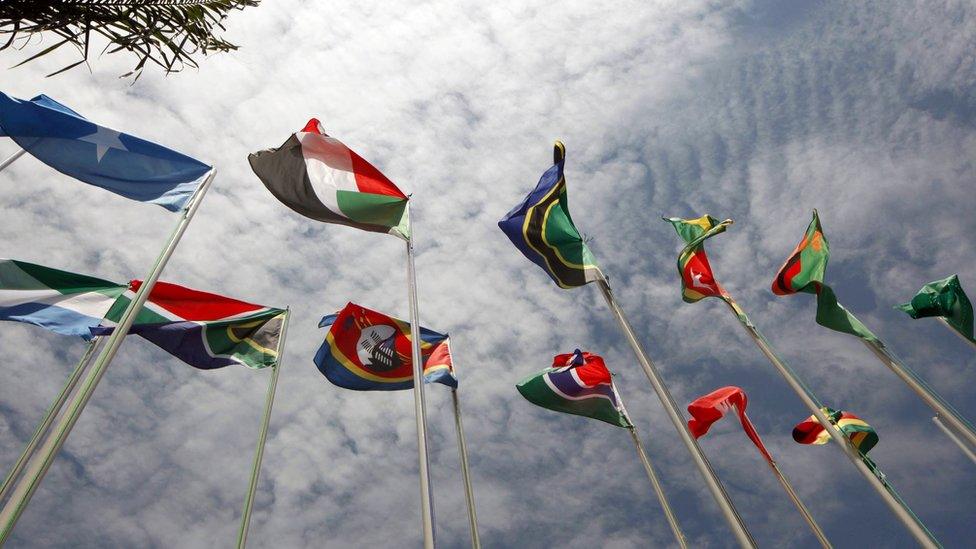
In our series of letters from African journalists, Ghanaian writer and former government minister Elizabeth Ohene explains why she has had a change of heart about the African Union.
I have a confession to make. I am falling in love with the African Union.
I suspect it is not a secret that I have never liked the African Union (AU) and its predecessor, the Organisation of African Unity (OAU).
I have been a lifelong critic.
I have been vocal in my criticism and I have written many articles stating my frustrations and disbelief in the workings of the organisation.
I think I can safely say that my criticisms were not made from afar; I had followed and studied the organisation right from its inception with keen interest.
My work brought me into close and uncomfortable contact with the staff and officials and I covered more OAU summits than I care to admit to.
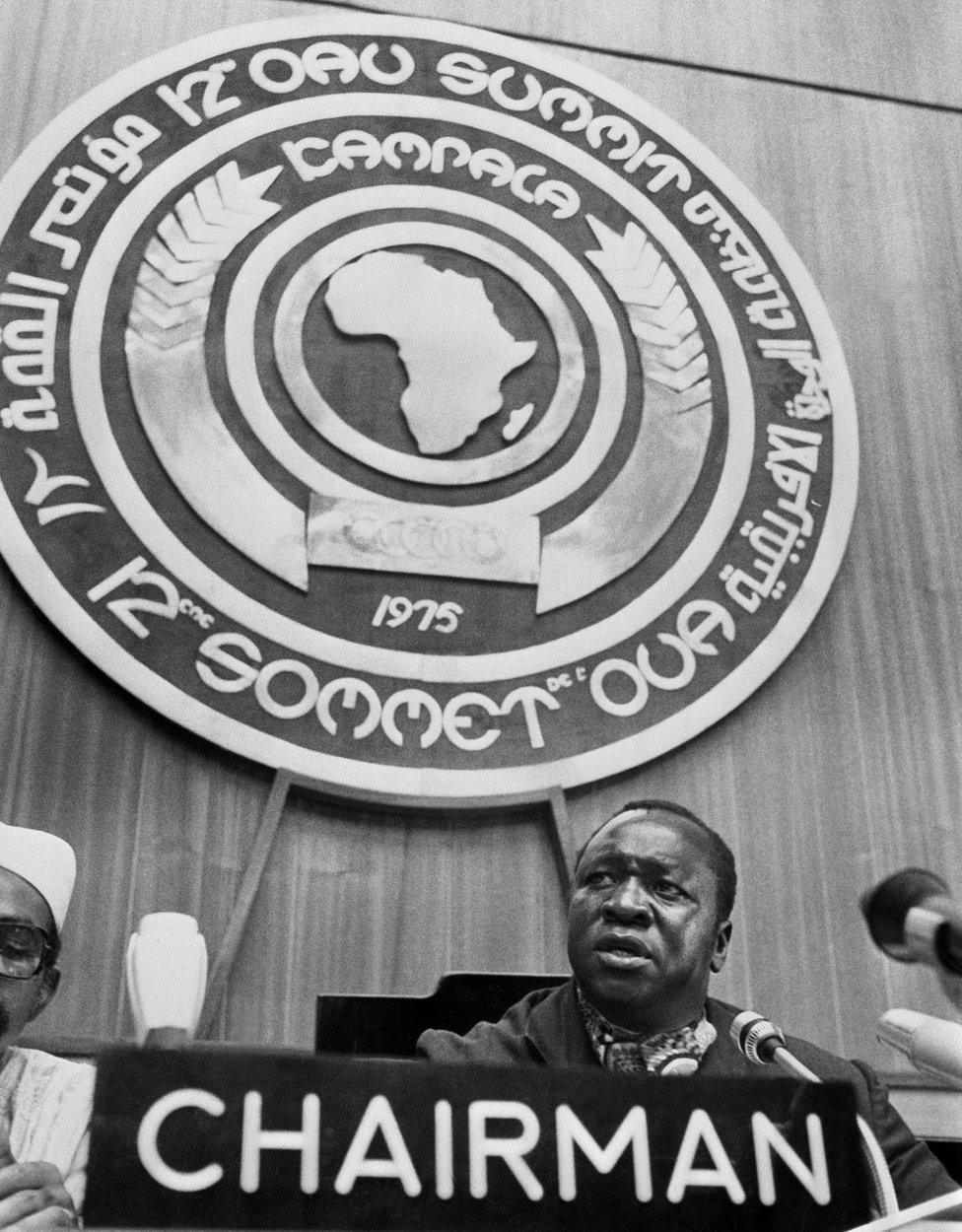
Julius Nyerere boycotted the OAU conference chaired by Idi Amin in 1975 to avoid giving "respectability to one of the most murderous administrations in Africa"
I gritted my teeth through sessions chaired by the Ugandan leader Idi Amin.
I cheered Tanzanian leader Julius Nyerere when he made a brave and, at the time, politically incorrect speech to the assembled heads.
I covered the OAU when dead bodies used to be heaped at the square in Ethiopia's capital, Addis Ababa, which the secretary general looked out on from his desk.
I covered the OAU when a civil war was convulsing the host nation Ethiopia and the war was almost at the gates of the organisation and nobody ever said a word about that war at any of the meetings.
I covered the OAU throughout the 1980s when the overall majority of African nations were either one party or military dictatorships, and the economies were mostly in shambles.
I covered the OAU when the principle of non-interference in internal affairs was sacrosanct and members would not condemn "Brother Presidents", no matter how badly they behaved towards their own citizens.

The African Union is concerned by the violence that has hit Burundi's capital since April
I covered the OAU when the condemnation of the apartheid regime appeared to be the only subject on the agenda of every summit.
I covered the OAU when there appeared a fresh crop of leaders who proclaimed belief in human rights, democratic process and condemned African leaders holding on to power, and then watched those same leaders become petty dictators and proclaim only they can save their countries.
I covered the OAU when more than three-quarters of the members were in arrears with their membership dues.
I covered the OAU when apartheid was defeated and Nelson Mandela became an African president and brought his stature to the organisation.
I covered the OAU when "African Renaissance" became the bywords for the continent and for the organisation.
Old habits
I then went into government and followed from the other end as Libya's Muammar Gaddafi tried to buy his way to become the dominant leader of the organisation.
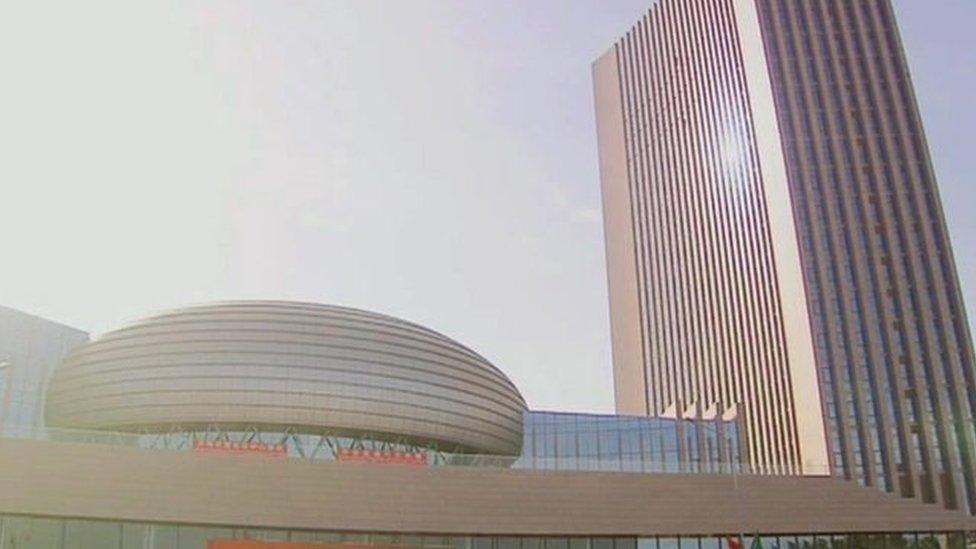
The AU opened its China-funded new building in 2012
I saw the OAU metamorphose into the AU and carry with it many of the old habits.
Then I got rather tired and I have been watching these days mostly without comment as China built a multi-million dollar headquarters, and the new nation of South Sudan degenerated into yet another African basket case.
Suddenly though, it seems the AU refrain is changing.

Elizabeth Ohene:

"After a lifetime of taking the OAU/AU for a joke, it looks like I have to take the AU seriously at last"

Two weeks ago, the African Union organised a conference in Lusaka on the subject of early marriages.
When I first heard the news, I was incredulous.
The AU simply does not do things like that; it does not touch subjects like that; it does not deal with every day, bread and butter issues.
Then I heard an official being interviewed during that conference and she said the fact that something might be a cultural practice does not mean it can't be challenged and discarded; "after all", she said, "culture is something started by us humans and we can stop it, if we want".
I took a deep breath.
That is the kind of language that would never have been uttered in AU circles.
Then on I heard on the news recently that the AU had decided that it would not sit by and watch Burundi slide into a civil war and a possible genocide.
The news further said that the AU had decided to send a peacekeeping force of up to 5,000 to Burundi even if the Burundi government was against the idea.
After a lifetime of taking the OAU/AU for a joke, it looks like I have to take the AU seriously at last.

More from Elizabeth Ohene:

- Published2 December 2015
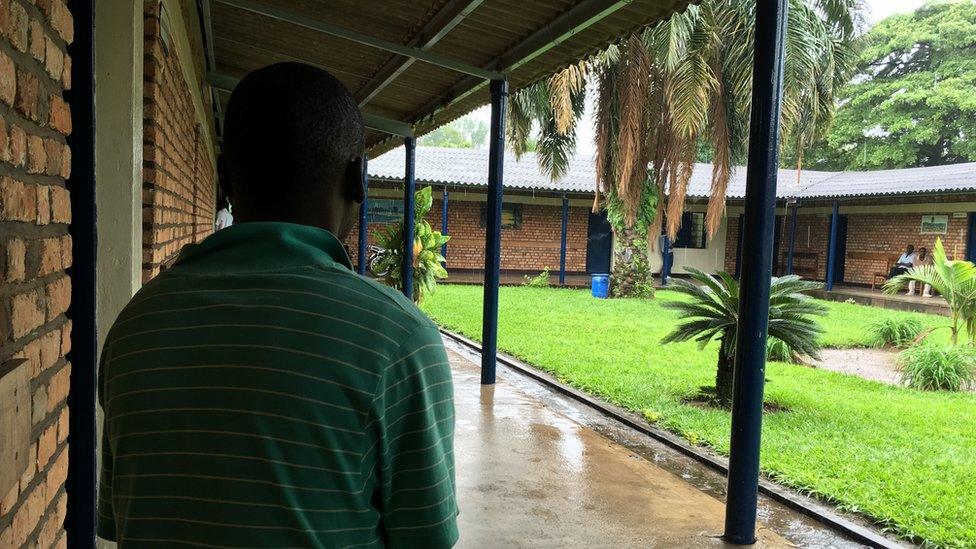
- Published3 November 2015
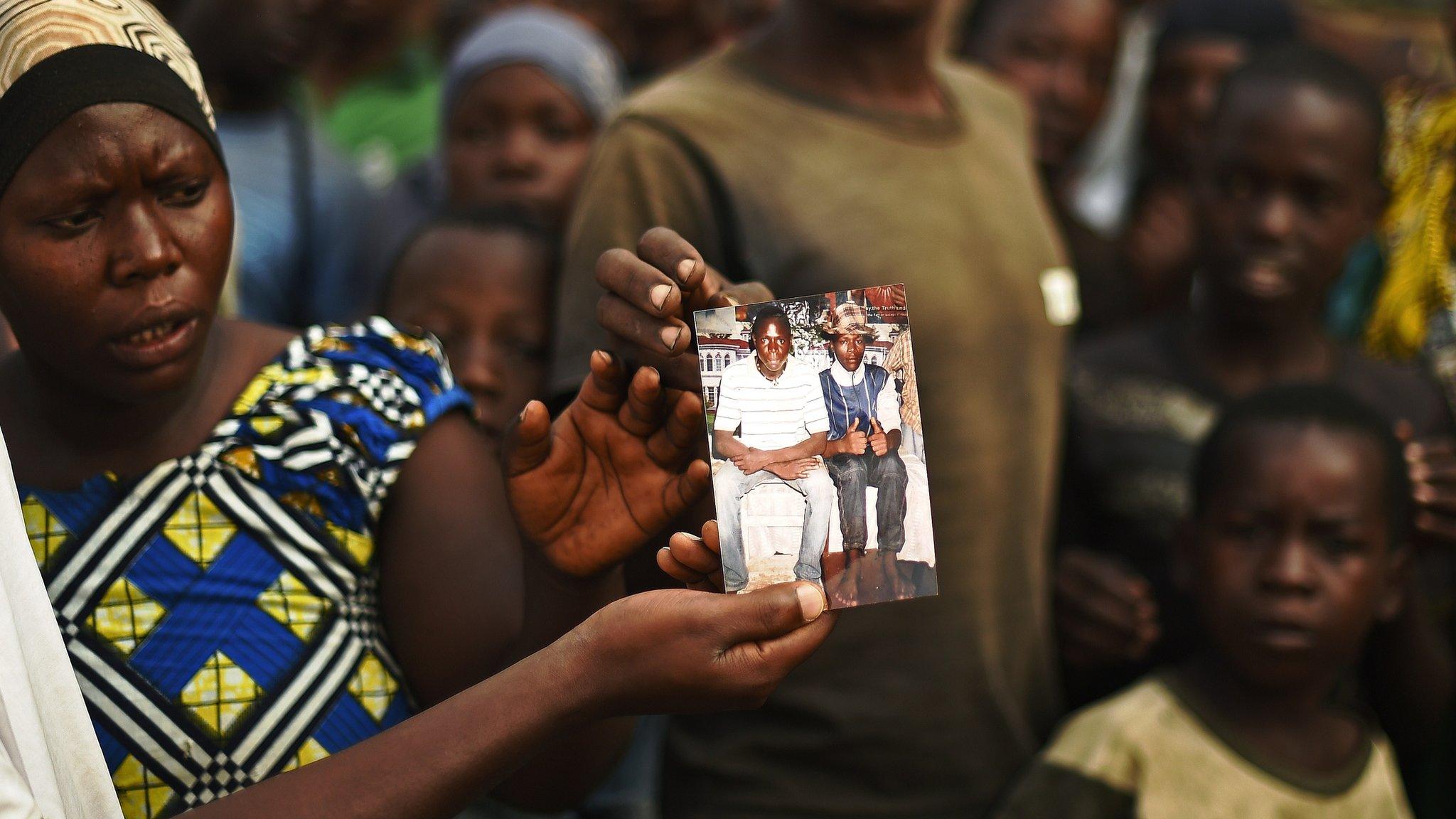
- Published24 August 2017